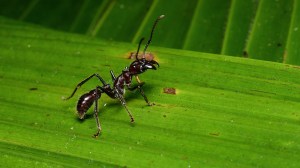People say you need a big fish in jail… when in jail they are small fish
They become just original characters,no longer powerful.
Colonel Muammar Gaddafi was rumoured to be fleeing south across the Sahara in a heavily armed convoy when the man whose job it is to jail him emailed me with a date for lunch.
It has been a busy time for Luis Moreno-Ocampo,chief prosecutor of the International Criminal Court,the independent court set up in the Hague almost a decade ago to investigate genocide,war crimes and crimes against humanity. As well as half a dozen ongoing African cases and fresh investigations under way,the Argentine lawyer now has Libyas elusive,fallen dictator in his sights. In June the court issued arrest warrants for Gaddafi,his son Saif al-Islam and intelligence chief Abdullah al-Senussi.
Bagging Gaddafi quickly would make for a coup in the court of global public opinion,which Moreno-Ocampo has played to assiduously since his appointment as the courts first chief prosecutor in 2003.
The ICCs short history has been filled with uncertainties such as those surrounding the fate of Gaddafi. When ratification by a 60th state brought the ICC into existence in 2002,Kofi Annan,United Nations secretary-general,described it as a giant step forward in the march towards universal human rights and the rule of law. Nine years and around $1bn later,the courts record in living up to such aspirations is mixed.
It has yet to secure a single conviction. And so far it has yet to open a single case outside Africa. The most advanced case now awaiting a verdict is that of the Congolese warlord Thomas Lubanga,who is accused of recruiting child soldiers into the militia he led in 2004. Meanwhile Omar al-Bashir remains Sudans president,flouting his indictment in July 2008 for genocide and war crimes during the Darfur conflict. And Joseph Kony,the quasi-mystical Ugandan guerrilla and leader of the Lords Resistance Army,is still terrorising the African bush,years after he was charged.
Much of the criticism of the court is levelled at Moreno-Ocampo himself and the tactics he has employed in building his cases. Wrapping a cool,confident exterior in Latin charm,he is quick to shrug off the attacks. He describes the legal environment in which the court has to operate much of the time as primitive and in still in the painful early stages of evolution.
The recent conflict in Libya has,he says,marked something of a watershed in the evolution of the attitude of the UN Security Council towards the court. The US position on the ICC was already softening. But China and Russia,who like the US feared the court would be used to prosecute their own citizens,both voted to refer Libya to the ICC when the danger of a massacre in the rebel-held city of Benghazi was imminent.
When you compare the Libya referral with the Darfur referral you can see the evolution, says Moreno-Ocampo. With Darfur the Council debated for three months. There was agreement there had to be justice. But the issue was who will do it.
Six years later,the Libya case came. There was no discussion. Instead there was consensus that the court should do it. So in just nine years the court became the permanent institution of justice that the world needs [in order to be less primitive.
His single-term tenure ends next year. How important is it to him that he gets Gaddafi behind bars beforehand? The funny thing, he says,is people say you need a big fish in jail to show how important you are. The problem is when they are in jail they are a small fish. They become just original characters,no longer powerful. It is not about individuals,it is about the institution.
For war criminals who think they can escape justice in the long run,he points to the salutary lesson lent by the International Tribunal on the former Yugoslavia,which provided some of the jurisprudence underpinning the ICC. There were more than 100 indictments,he says,and since Ratko Mladic was arrested earlier this year all alleged criminals have been arrested. It is only a matter of time, he says.
William Wallis© 2011 The Financial Times Limited
Photos


- 01
- 02
- 03
- 04
- 05





























